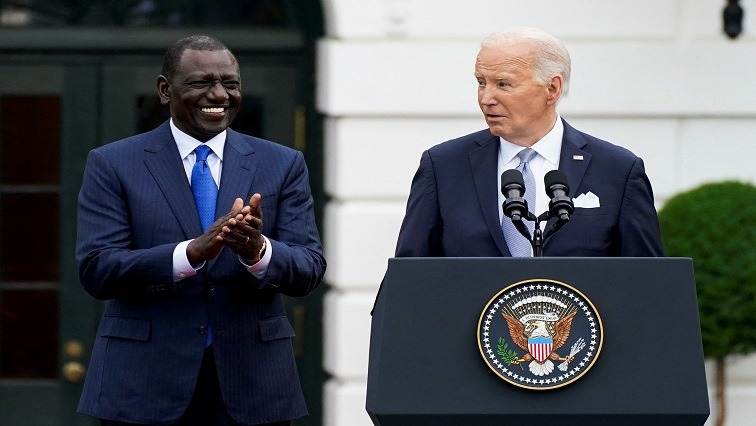The Presidency and the Ministry and the Department of Justice are scrambling to resuscitate the Special Tribunal, which effectively collapsed following the resignation of its head, Judge Lebogang Modiba.
Besides Modiba quitting, another Tribunal judge has retired and four others have been inactive for most of this year.
Yet action is only now being taken to appoint a new head of the Tribunal, as well as new judges. This comes three-and-half months after Modiba handed in her resignation at the end of March – which was effective from the end of June.

One of the most effective weapons in the government’s anti-corruption arsenal, the Tribunal was established in 2019 to hear applications by the Special Investigating Unit (SIU) to freeze and confiscate the proceeds of corruption, including money, properties and vehicles.
The Tribunal is central to the work of the SIU and was established to ensure the unit could swiftly apply for preservation orders without having to navigate busy court rolls to get matters before the High Court.
President Cyril Ramaphosa estimated that by March 2022, the value of civil litigation to recover money lost to corruption referred to the Special Tribunal and High Courts “amounted to R75 billion”.
In his February 2023 statement, Ramaphosa said the amount was “roughly equivalent to what was budgeted for the child support grant this year.”
GroundUp has reliably learned that the SIU has several high-profile matters, including cases involving lottery corruption, ready to take to the Tribunal. But it has held back because of the lack of capacity to hear them.
The SIU was guarded in responding to a query about how the serious issues facing the Tribunal would affect the unit.
In a one-paragraph response, SIU spokesperson Kaizer Kganyago said: “We have engaged the Department of Justice about this matter as it has the potential of impacting on our work as the SIU.”
‘ROCK OF THE TRIBUNAL’
A founding member of the Tribunal, Modiba has also been its driving force since being appointed its President in 2022, handling case management and juggling judges to hear matters.
She is also a judge in the Gauteng High Court and in the Electoral Court.
Modiba has personally heard 78 out of 107 of all matters brought before the Tribunal during its five years of existence. Of the Tribunal’s seven judgments so far in 2024, Modiba has handled six.
A source with knowledge of the key role played by the Tribunal in the work of the SIU said: “She was the rock in that place. There are meant to be eight judges, but in reality, she was basically working alone, with poor support from the Department of Justice and limited resources.”
“The SIU’s legal outcomes are based on the Tribunal being effective. Without a properly functioning Tribunal, the SIU will be hamstrung. It will have to join the queue with everyone else at the High Courts.”
Judges Matter, an organisation that holds the judiciary to account, has said of Modiba: “Soft-spoken Modiba is respected for her firm but fair approach to Tribunal hearings, and is quick to call out lawyers for their antics in court.”
CAUGHT BY SURPRISE
The Special Tribunal falls under the Ministry of Justice but, operationally, the Department of Justice funds its day-to-day operations. Tribunal staff are Department of Justice employees, and its website is hosted on the department’s website.
GroundUp was told that Modiba sent her letter of resignation directly to (then) Justice Minister Ronald Lamola in March, giving a full term’s notice of her resignation. It is unclear what he did about it.
What is clear is that the Department of Justice was caught by surprise when they learned only at the end of June that Modiba had resigned. This was three months after she had tendered her resignation.
The department only briefed the Justice Ministry a week later.
“Someone in the [former] Minister’s office [Ronald Lamola] dropped the ball badly on this,” a source told GroundUp.
“The Department was informed at the end of June 2024 (when she left office) of the resignation of Special Tribunal President Modiba and processes have been underway to capacitate the Special Tribunal,” Tsekiso Machike, spokesperson for the Ministry of Justice told GroundUp.
“In this regard, a memorandum on the recommendation of the appointment of Special Tribunal President and members is being processed to the Minister for approval and with subsequent submission to the President for consultation with the Chief Justice, whereafter the President will make an appointment.”
The Ministry only learned of Modiba’s resignation a week later, according to Machike.
“The Ministry was briefed on Monday, 8 July about the capacity challenges for the Special Tribunal and the Ministry was informed that processes are underway to address same,” he said.
“This includes the appointment of four members of the Special Tribunal, including the President of the Tribunal.”
New appointments of judges would be made to replace those who retire, or resign from the Tribunal, Machike said.
A meeting between the Deputy Director-General: Court Administration, and the Head of SIU is scheduled for 31 July to discuss the Tribunal and matters ready for hearing, he said.
Justice Department spokesperson Kgalalelo Masibi referred questions to the SIU’s Kganyago. When it was pointed out to her via WhatsApp that her department, not the SIU, was responsible for the Tribunal, she read the message but did not respond.
A source with experience of the working of the Tribunal said: “The Special Tribunal was one of the most successful anti-corruption elements of the sixth administration. What has happened is an indictment of that administration, especially (President Cyril) Ramaphosa.”
WHY MODIBA QUIT
There is widespread speculation over why Modiba, who had done so much to build the Tribunal, decided to quit. Groundup was told it was partially the result of frustration at a lack of resources and support from the Department of Justice.
Several sources also pointed to allegations that Modiba had tried to influence the appointment of a registrar in her office, which was leaked to the media.
The subsequent reporting left her embarrassed and angry, two different sources with knowledge of the incident told GroundUp. Both believed that the leak was “intentional” and intended to put pressure on her to quit.
Another issue that affected the Tribunal was a Constitutional Court judgment that it was technically not a court but had the power to “adjudicate legality reviews”.
Tribunal judges serve in different High Court divisions and are not paid extra for their Tribunal services, which is seen as a prestigious judicial appointment. Their Tribunal work is over and above their normal judicial work.
“It was the beginning of the end for the Special Tribunal because for the judges it did not have the status of higher courts and fewer and fewer judges put up their hands to get involved,” GroundUp was told.
The Tribunal was consuming Modiba’s work and she had to choose between her additional judicial work there and her work for the Electoral Court.
“The volume of work was getting too much and she chose the Electoral Court,” a source said.
SIU AFFECTED
This is not the first time that staffing issues at the Tribunal have affected the fight against corruption. In 2022, GroundUp reported how for almost two months – from 4 March to 1 May – the Tribunal couldn’t hear new cases because the three-year contracts of the judges had expired and President Cyril Ramaphosa had not renewed them.
The President, in consultation with the Chief Justice, is responsible for the appointment of Tribunal judges in terms of the Special Investigating Unit and Special Tribunals Act. He also has discretion as to the length of Tribunal judges’ contracts.
The Tribunal’s last judgment was in May and the SIU, which has several applications for preservation orders ready to take to the Tribunal, has lodged no new applications for months.
“Any High Court may be approached [by the SIU] but that would not be necessary as the capacity challenges are being attended to and the third term roll has been finalised and matters are set towards the end of July 2024,” said Machike.
BETTER USE OF RESOURCES
“It would be a more efficient use of resources to establish a Special Tribunal-like function within the High Court, which would have its own dedicated roll and admin staff, and judges could rotate in and out depending on capacity,” said Judges Matter advocacy officer and researcher Mbekezeli Benjamin.
This, he explained, would be similar to the Tax Courts, which are part of the High Court but are largely funded from the SARS budget.
“The Joburg Tax Court sits with its own administration in Sunninghill [in Sandton] away from the High Court Building in the CBD. Judges are rotated in and out of the court. The Tax Court is both efficient and effective.”
-EWN
#Eskom #Illegal #connections #main #reason #power #supply



